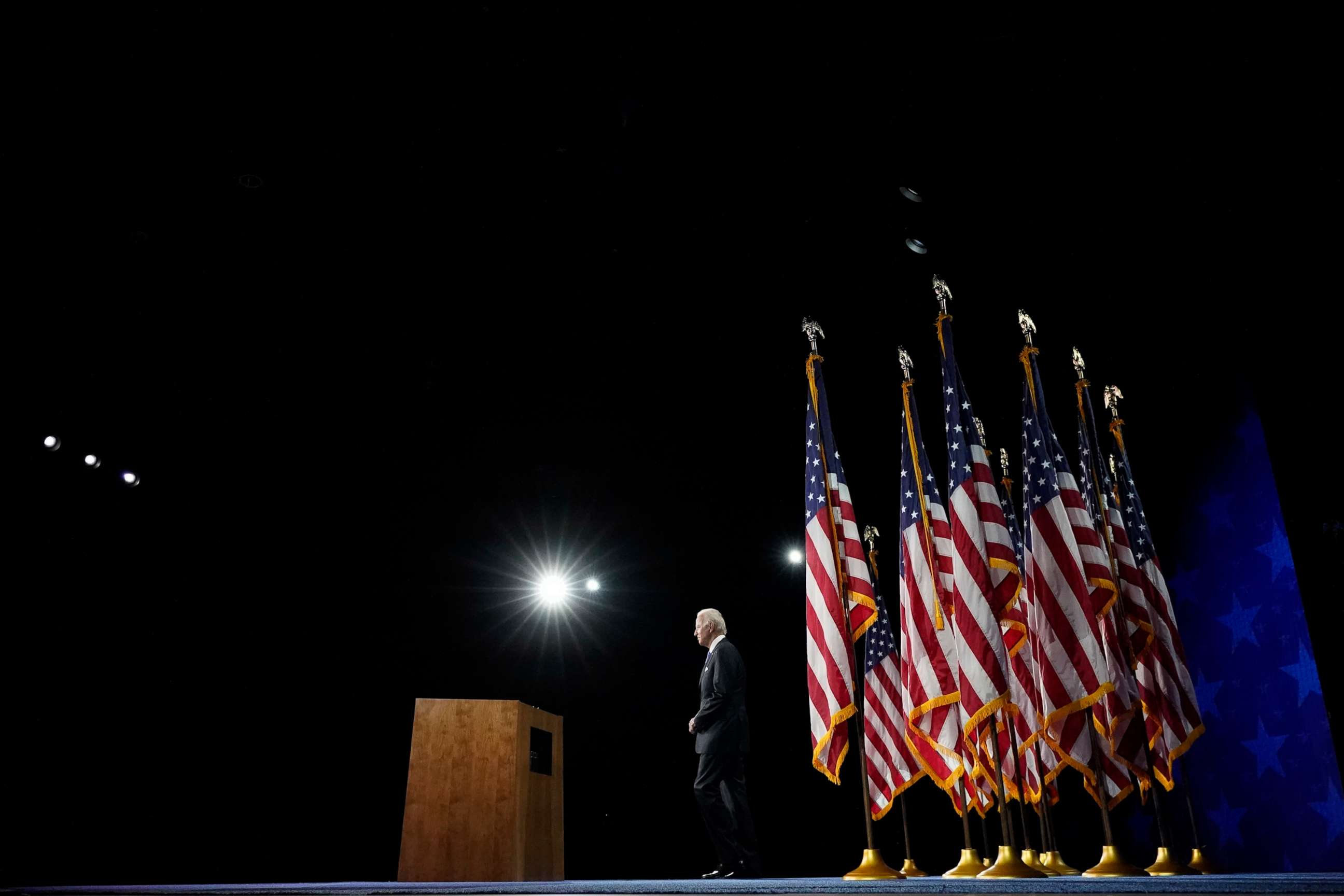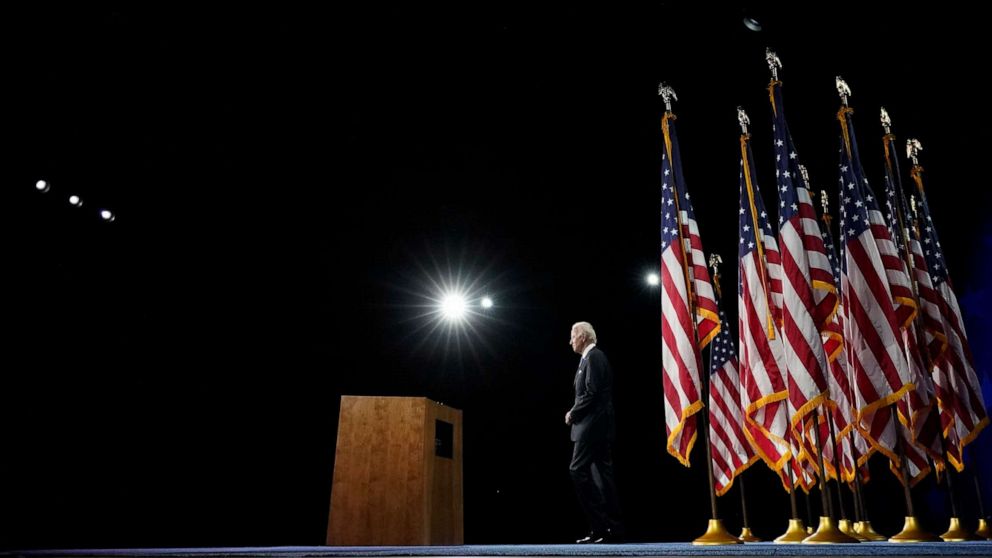Covering Biden's history-making speech in the middle of a pandemic: Reporter's Notebook
There were no raucous celebrations on the floor of a jam-packed basketball arena, no minute-long pauses for applause from an adoring audience.
Instead, there were roughly three-dozen reporters, a skeleton camera crew, a handful of Secret Service agents and a smattering of campaign staff sitting and waiting in silence in a dark room inside a Delaware convention center, the audible hum of an air conditioner the only noise interspersed between the unmistakeable clicks of fingers on keyboards.
The setting for former Vice President Joe Biden's speech accepting the Democratic Party's presidential nomination was simultaneously bizarre and historic, alien but familiar in a time when a global pandemic has changed just about every facet of how the world functions.
Prior to heading into the venue, I wandered around the drive-in movie theater that was set up and became the site for the culmination of four nights of convention programming that, like most aspects of American society in the last five months, were fundamentally transformed by a pandemic that has now taken over 170,000 lives in the United States.
As curious onlookers peeked in through fences surrounding the hotel and event space where Biden spoke, perched on the banks of the Delaware River and surrounded by a heavy police presence, hundreds of cars pulled in to a wide-open parking lot, spaced out and pointed at giant screens.

"They're all from Delaware, either delegates to the convention, elected officials or their families," one security guard patrolling the venue told me when I asked who exactly it was that had come to spend their Thursday night in a parking lot to listen to speeches from the likes of former Democratic presidential candidate Andrew Yang, Sen. Tammy Duckworth and other Democratic dignitaries leading up to Biden's address.
As a reporter embedded with his campaign, I have covered Biden for over a year now, from union halls in eastern Iowa, to high school gymnasiums in woody New Hampshire, to churches dotted across the state of South Carolina, to the National Constitution Center in Philadelphia, one of the final speeches he made before the coronavirus pandemic shut down the campaign trail.
"We will lead by science," Biden said from a Wilmington hotel in mid-March, his last speech before the fully-virtual campaign took hold.
"Downplaying [COVID-19], being overly-dismissive or spreading misinformation is only going to hurt us and further advantage the spread of the disease," he added, a line that would come to define his main critique of President Donald Trump's handling of the pandemic, which he has assailed in nearly every public appearance over the past five months.
But on Thursday evening, on the night where Biden would give a speech that in many ways ended a nearly half-century journey through public service and personal tragedy, I covered an event distinct from any other I have attended and will likely ever attend again in my life.
It was only after receiving two negative tests for COVID-19 and spending most days cooped up in a hotel room that I, along with 30 or so other print, television, radio reporters and still photographers, many of whom have covered Biden since he launched his campaign back in April of last year, were allowed into the Chase Center to view Biden's speech.
After a security sweep, temperature check and 45-minute wait in a large auditorium watching the convention, we were led into a cavernous room, a massive camera set up pointed directly at a wooden podium where Biden gave the speech he's been wanting to give for over 40 years.
"Everyone, please silence your phones and computers," we were told, making me feel less like a campaign reporter and more like a moviegoer reaching into his pocket to make sure his iPhone doesn't go off in the middle of a pivotal scene.
Biden's speech, just over 20 minutes long and filled with many of the same lines and sentiments he has centered his campaign around in the roughly 16 months since he launched his third and ultimately successful bid for the Democratic nomination, came and went, this time with a historic weight and heft they had not possessed before.
After watching Biden, his running mate Sen. Kamala Harris and their spouses take in some fireworks, this unprecedented, unparalleled campaign again began its slow march toward November's vote.




